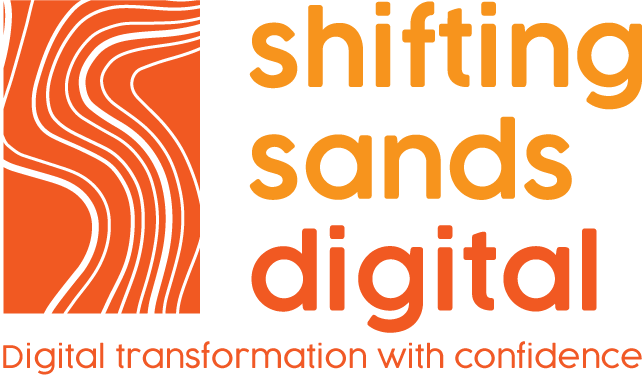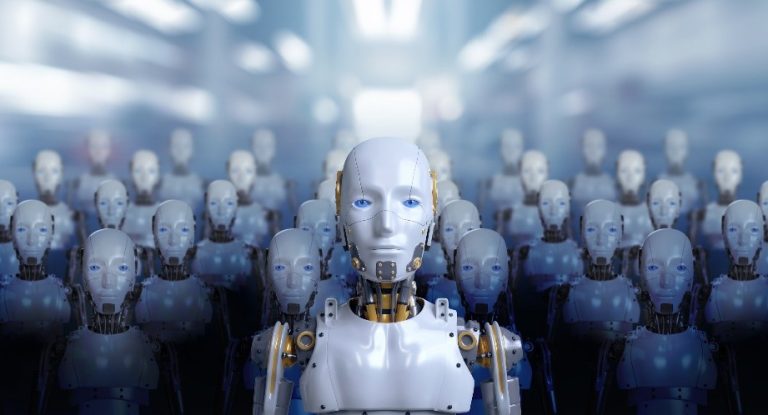Thriving in the AI Revolution:
30 March 2023, Bernard Marr
The era of artificial intelligence (AI) is upon us, and it’s evident that this ground-breaking technology is far more than just a figment of science fiction. With generative AI tools like ChatGPT making waves, the impact of AI on our lives is likely to be monumental, surpassing even the influence of personal computers, the internet, or smartphones. To navigate this rapidly evolving landscape, it’s crucial to stay informed and adapt to the changes ahead.
Here we explore eight essential insights to help you understand and thrive in the AI revolution.
1. AI is already here and all around us
AI has already infiltrated our daily lives, from online shopping and internet searches to ordering food and navigating our routes. While it’s easy to view AI as a distant, futuristic concept, the reality is that it’s here now and shaping the world around us. As AI technology continues to evolve, its presence in our lives will only grow more pervasive.
2. AI won’t make you redundant – at least not yet
One of the most significant concerns about AI is its potential to replace human jobs. However, current AI systems lack the capabilities to replace entire skillsets fully. Jobs requiring human-to-human interaction or complex decision-making remain relatively safe for now. Nevertheless, automation has already replaced some jobs, and as AI continues to advance, it’s essential to stay ahead of the curve.
3. AI will impact your job, business, or industry
Regardless of your occupation or field, AI is poised to have a profound effect on your career. Ignoring its impact could lead to being surpassed by competitors or innovative startups that have embraced AI. To avoid the fate of companies like Blockbuster or Kodak, it’s crucial to consider how AI will shape your industry and plan accordingly.
4. Generative AI can enhance your work and efficiency
AI tools and applications are already available to help you improve your work, from drafting reports to creating videos, music, or images. While the current quality of AI-generated output may not be perfect, it can significantly speed up the early stages of ideation, designing, and drafting, making your work more efficient and innovative.
5. Ethical and explainable AI is vital
For AI to reach its full potential, it must be both ethical and explainable. People need to trust AI systems with their sensitive data, which requires transparency in decision-making processes and alignment with our values. Addressing potential biases in AI is crucial for building trust and unlocking the transformative power of this revolutionary technology.
6. AI will redefine education and skill development
As AI continues to advance, the skills and education needed to thrive in the workforce will evolve. To stay competitive, individuals must be willing to learn new skills, adapt to emerging technologies, and embrace lifelong learning. Educational institutions will also need to adapt their curriculums to prepare students for a future heavily influenced by AI.
7. AI has the potential to solve global challenges
AI offers unprecedented opportunities to tackle some of the world’s most pressing issues, such as climate change, disease, and poverty. By harnessing the power of AI, we can develop innovative solutions, optimize resource allocation, and drive progress on a global scale. However, realizing this potential depends on widespread collaboration, investment, and responsible AI development.
8. Balancing AI’s benefits and risks is crucial
While AI promises remarkable benefits, it also presents potential risks, such as privacy concerns, job displacement, and the concentration of power in the hands of a few tech giants. As a society, we must strike a balance between harnessing the advantages of AI and addressing its potential drawbacks through thoughtful regulation, public discourse, and equitable access to AI technology.
The AI revolution, powered by tools like ChatGPT, is set to transform our world in ways that are difficult to predict. By staying informed and adapting to the changes ahead, individuals and businesses can thrive in this new era. Embracing ethical AI development, ensuring equitable access, and striking the right balance between benefits and risks are essential steps for shaping a future where AI serves humanity and drives positive change.

